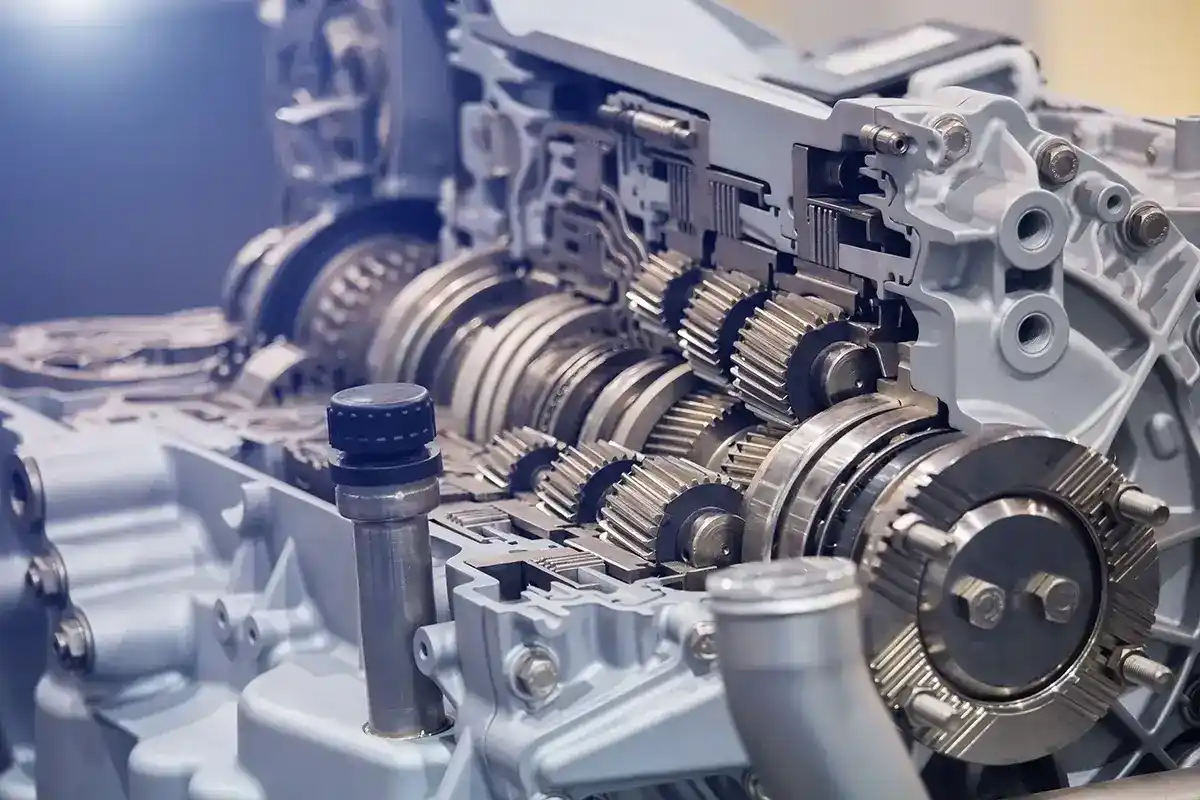How to extend the life of trucks and commercial vehicles
15 May 2023

From small owner-operated trucks to large continent-wide fleets, each year commercial vehicles collectively travel billions of miles to transport the goods and materials which help keep people fed, clothed, housed, healthy and happy. And, if you’re a truck owner or fleet operator, making the right choices can help prolong the working life of your vehicles by reducing maintenance costs and avoiding costly repairs. So, let’s take a look at some of the things you can do as a truck owner or operator to extend the life of your commercial vehicles:
1. Use the correct heavy-duty engine oil
Undesirable friction in the engine or chassis of trucks causes wear which can lead to premature failure. By using the right lubrication, you can increase performance while avoiding costs caused by damage. The diesel engine in a truck receives continual lubrication by running in an internal bath of motor oil. Engine oil reduces the friction between moving parts, particularly the pistons rings which move in the cylinder walls many thousands of times every minute. As well as stopping harmful wear and lengthening the engine’s life, motor oil reduces the power required to overcome friction. This leaves more power available for forward motion, allowing the vehicle to perform more efficiently.
Engine oil also reduces the heat generated due to unwanted friction and helps shed it (and the other heat produced by the engine) via an oil cooler. In addition to lubrication, modern engine oil contains additives which help clean the parts they protect and remove dirt and other deposits. This is particularly important in modern low-emissions diesel engines.
The frequency with which you change the motor oil in your truck is typically defined by the manufacturer. Oil change intervals range from 10,000km to 50,000km depending on the age, condition and use of the vehicle. 25,000km is common for many heavy-duty trucks. With long-drain heavy-duty engine oils like Gulf Superfleet Professional, you can extend the duration between oil changes to reduce maintenance costs further without compromising performance or protection.

2. Use the right gear oil and transmission fluids
Trucks have a separate supply of oil to lubricate their manual gearbox. Trucks with automatic transmissions use automatic transmission fluid. Manual truck gearboxes typically require an oil change every 48,000km to 80,000km. Automatic gearboxes may have longer fluid change intervals of between 96,000km and 160,000km. Undesirable friction within the transmission can causes excessive wear and eventual failure, leading to the vehicle being taken off the road for costly repairs. A high-quality gear oil or transmission fluid can improve gear durability, increasing the lifespan of your truck or commercial vehicle. Gulf's synthetic gear oils help maintain optimum viscosity and lubrication over prolonged periods.
3. Grease joints regularly
Greasing is an important part of maintaining a truck. The chassis and drivetrain (gearbox, driveshaft, axles and wheels) contain a number of moving parts which can be subject to wear and thus will benefit from regular lubrication. Universal joints are a pair of perpendicular hinges joined by a cross-shaft. They connect a truck’s rotating driveshaft to the differential and (often) the driveshaft to the transmission. They allow rotational drive from the engine to reach the wheels, whilst permitting the wheels to move up and down with the suspension. Ball joints are similar but do not rotate. Instead, they are used to connect the control arms, linkages and tie rods of the suspension, whilst allowing the wheels to steer.
Both universal joints and ball joints require regular greasing. Grease is a heavy form of lubricant which is manufactured from oil with additives to make it thick and clingy. It provides a protective film over metal components to reduce wear. Truck manufacturers will often recommend greasing intervals of around 40,000km to 50,000km. However, for a longer life, a good rule is to regrease components every time you change your truck’s engine oil. High-quality calcium thickened lubricating grease is based on mineral oil and contains antioxidants, corrosion inhibitors and EP/AW additives is ideal for trucks. Gulf Crown EP was specifically designed for this purpose.

4. Maintain the right tyre pressures
With many commercial vehicles used almost continually, tyre pressures are something which can get over looked and even neglected. However, they can have a profound effect on performance, safety and maintenance costs. The correct tyre pressure for a medium-to-large truck is typically between 8 bar (116 PSI) and 9 bar (131 PSI). The recommended figure is usually visible somewhere on the vehicle or in its user manual.
Pressures should be checked when the tyres are cold (before use). If a tyre is overinflated, both its grip and the ability to absorb bumps can be reduced. Handling can become nervous and the tyre can be more prone to punctures and wear, particularly in the centre of the tread. However, it is underinflated tyres which are perhaps the more common occurrence on trucks and commercial vehicles. When the pressure in a tyre is allowed to drop, it contains insufficient air to support the weight of the vehicle which can adversely affect acceleration, handling and braking. The tyre’s contact patch with the road surface becomes enlarged, causing increased friction on the outside edges of the tread, leading to premature and uneven wear. Heat can quickly build up leading to a sudden tyre deflation (puncture) which can be dangerous.
Checking tyres weekly (or even more frequently) is essential to maintain recommended pressures which improve performance, optimise full efficiency and minimise wear; all helping your truck last longer.
5. Keep up with regular routine servicing
As well as regularly changing the engine oil, transmission fluids or gearbox lubrication as recommended, every truck or commercial vehicle has a servicing schedule which should be maintained to prolong the life of the vehicle. The frequency and contents of the service schedule can vary depending on model, manufacturer and use. However, regular servicing will typically include:
• Fluids and engine oil change
• Air and fuel filter change
• Brake inspection and potential replacement of pads, discs and fluid
• Checking and replacing tyres
• Steering inspection and alignment
• Lighting and electrical inspection
Ensuring these checks and changes are made is critical to the long and trouble-free life of a hard-working commercial vehicle. Without them, performance can decline, reliability can deteriorate and the vehicle can require significant repairs or even suffer premature failure. Keeping your truck clean can also prevent damage. Dirt, grit and other contaminants build up and can get into moving parts and electrical components, resulting in failure and costly repairs. Washing with a high-pressure water hose can dislodge dirt and keep components clean to prolong the life of your truck or commercial vehicles.

6. Don’t overload your truck
Every commercial vehicle has a maximum weight which it is able to carry. Exceeding this weight can be dangerous and illegal in some countries or territories. In addition, overloading can reduce the lifespan of your vehicle by putting excess strain on the engine, chassis and other key components; causing wear and damage.
Improperly or excessively loaded vehicles will typically suffer from poor performance. Steering, manoeuvrability, braking and acceleration may all be adversely affected.
Engines have to work harder to carry heavy loads which decreases efficiency and increases wear. Braking will be affected as a heavier vehicle takes a greater distance to stop and wears out brakes quicker.
Overall, overloading a truck or commercial vehicle increases the cost of maintenance. Premature and preventable wear is more likely and the failure rates of many components will increase due to added stress. To ensure the long life of your vehicle, make sure it only transports load which are well within its capabilities and they are evenly distributed and well secured.
Maintenance is key
Look after your truck and it will last longer. It is little surprise that the way in which a truck or commercial vehicle is used and maintained can have a significant impact on its performance and longevity. Regular servicing, correct tyre pressures, avoiding overloading and keeping your vehicle clean can all be essential to achieving a long service life. However, it is regularly changing the engine oil and lubricating moving parts with high-quality products which will perhaps have the greatest impact on ensuring your truck delivers a long and productive working life.

